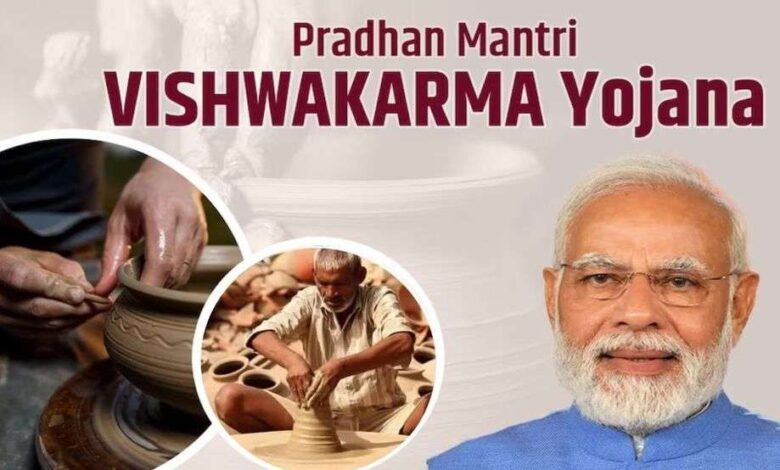
The Prime Minister, Mr. Narendra Modi, has launched the PM Vishwakarma Scheme as an effort to revive India’s lost artisan community through support, training, and market opportunities. The most significant contribution of this initiative is toward a more sensitive regional level, particularly in a place like Tirupati, where traditional crafts are always supposed to be an integral part of the cultural landscapes. With a focus on artisans’ skills and livelihoods, the scheme looks at the economic aspects growing together with heritage.
PM Vishwakarma Scheme Overview:
PM Vishwakarma Scheme The scheme comes under the umbrella government policy of reviving the indigenous arts and crafts along with strengthening the livelihood of the artisans. While the scheme nurtures skill sets, this prepares traditional artisans to compete in markets. It recognizes their contributions to India’s cultural and economic fabric. Empowers them to thrive in such an environment.
Community Artisans of Tirupati
The scheme in Tirupati has responded very well. Under the scheme, currently 43,287 artisans have registered under this initiative that speaks of very robust artisan communities engaged in weaving, pottery, and metal work, amongst other traditional crafts.
Verification and Selection Process
Of the artisans registered, 12,394 were selected through a verification process under three categories. This evaluation ensures that those who are being trained will represent true traditional crafts and have prospects for developing in the future.
This type of selection process will allow the government to strengthen the artisan ecosystem where not only do they master their craft, but all of them become eligible to receive numerous government benefits in the form of financial assistance, marketing support, and more.
Training Programs: The Next Generation
Training is another much-needed feature of PM Vishwakarma Scheme. Till date, about 9,744 artisans have been groomed up with various courses at 13 specifically created centers operated by Tirupati. The courses focus on the following key areas:
Craftsmanship Upgradation:
Artisans are provided with job-level training so that they develop products of quality apt to pleased consumers in today’s times.
Entrepreneurship Development:
The participant builds the skills that will take them through adequate business management and marketing strategies, as well as financial literacy. Equipped with these hands, one can effectively be an assistant to whomsoever ventures forth in the commercial playground.
Digital Literacy:
Preparing the artisans so that they are fully conversant on how one can take their products online and also have access to online sales.
These two are very significant in making artisans empowered through the resulting crafts being effectively sustained within today’s economy.
Effect on the Artisan Ecosystem
The PM Vishwakarma Scheme is already making a big difference in the artisan ecosystem in Tirupati. It generates community consciousness among artisans and urges people to collaborate and innovate. Recognition for work also goes up, as well as demand for traditional crafts.
In addition, the scheme preserves arts and crafts which, otherwise, would fade away due to advanced manufacturing techniques. By enhancing the skills of such artisans and enabling them to mold themselves according to current trends, PM Vishwakarma Scheme ensures that these old traditions are happily alive and kicking.
Government Support and Future Prospects
Efforts the government has put into boosting funding, increasing training opportunities, and facilitating market access reflect genuine commitment by the government towards supporting the artisan community through the PM Vishwakarma Scheme. What local leaders such as Satya Kumar Yadav say marks its importance: “The PM Vishwakarma Scheme is built to empower our artisans, giving them the tools they need to succeed.”. We hope every artisan in Tirupati gets the opportunity for developing livelihood while developing their heritage.
Scaling up the training centers and increasing the number of artisans benefited through its initiatives will only further fortify the artisan ecosystem as the program progresses.
Conclusion
Among these provisions by the Indian government to support their artisans is the PM Vishwakarma Scheme. The scheme has indeed had a positive ripple effect in Tirupati, empowering thousands of artisans through skill enhancement, market access, and improved livelihoods.
The program is rightly positioned to transform the artisan landscape in Tirupati and beyond. It can successfully look after the rich traditions of craftsmanship for generations with continued investment and support, and it will look very bright for artisans who are, really, the soul of Indian cultural heritage.




